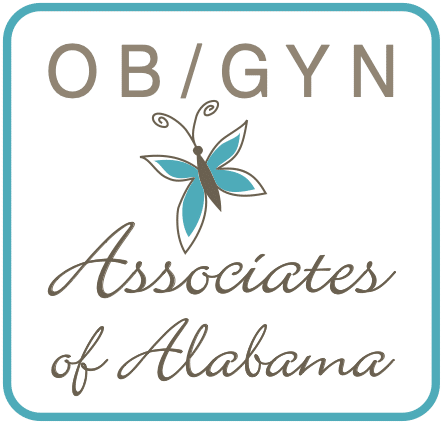
Incontinence & Menopause: Why It Happens And What You Can Do
You never really fully understand how uncomfortable menopause can be until you go through it. Between hot flashes, mood changes, and sexual discomfort, there’s a whole host of physical and mental changes that can make this time difficult for any woman. Experiencing urinary incontinence on top of everything else can feel frustrating and embarrassing—but over half of postmenopausal women face problems with bladder leakage.
Just because incontinence is common, however, doesn’t mean you have to live with it. If you haven’t talked to your doctor about bladder leakage, now is the time to start the conversation and get your quality of life back.
At OB/GYN Associates of Alabama, we have many options for incontinence treatment and menopausal management. We’re here to assure you that you’re not alone and you don’t have to live with bladder leakage!
What Causes Urinary Incontinence
Many women think that bladder leakage is simply something they have to learn to live with. One survey found that most women don’t realize incontinence is a health problem, and therefore don’t talk to their doctors about treating it.
In fact, incontinence often has treatable, underlying causes, and may not be a “normal” part of aging. Your bladder leakage could be caused by a number of factors, including:
- Weak or overactive bladder muscles
- Nerve damage caused by disease, injury, or stroke
- Weakened pelvic floor muscles or pelvic organ prolapse
- Obesity
- Constipation
- Certain infections, such as urinary tract or vaginal infections
These are just a few of the common root causes of urinary incontinence which can be successfully treated or managed with the help of a trusted OB/GYN.
Types of Urinary Incontinence
Not all bladder leakage issues function alike. We most commonly see two types of incontinence in women: stress incontinence and urge incontinence.
Stress Incontinence
Stress incontinence is leakage that happens unexpectedly when you cough, sneeze, laugh, or exercise. It is usually the result of weak pelvic floor muscles. Your abdominal and pelvic muscles help balance and regulate bladder control, and when they’re weakened, unexpected pressure or stress on your bladder can lead to an accident.
Common risk factors for this type of incontinence include vaginal childbirth and age, though menopause itself doesn’t necessarily make this type of incontinence worse.
Urge Incontinence
This type of incontinence, also called overactive bladder, is leakage that happens when you feel a strong urge to urinate. Sometimes, it begins with a normal need to go that subsides and comes back as a stronger, more desperate feeling. It can also happen during sex, which makes many women avoid intercourse altogether for fear of having an accident.
If you’re in a constant cycle of needing to go to the bathroom, frequently waking up to pee, worrying about leakage, or suffering accidents or near misses, you could have overly active or irritated bladder muscles.
Bladder Leakage Treatments
The emotional toll that incontinence can take in the form of anxiety, disrupted sleep, or sexual avoidance is real. This is just part of why it’s important to talk to your doctor about these issues—don’t let embarrassment keep you from getting the help you need!
There are several treatments for bladder leakage. The right choice for you will depend on the type of incontinence you’re experiencing and the underlying causes. We understand how complicated and personal menopause is for women, and that’s why we take time to understand your family history, symptoms, goals, and preferences thoroughly.
Common treatment plans include one or more of the following:
- Lifestyle adjustments, such as bladder training, biofeedback, scheduled bathroom breaks, and fluid/diet management
- Kegel exercises and other forms of pelvic floor physical therapy
- Medications for overactive bladder, called anticholinergics
- Surgical procedures
- Vaginal rejuvenation
MonaLisa Touch® Vaginal Rejuvenation
At OB/GYN Associates of Alabama, we’re proud to offer a revolutionary treatment for vaginal rejuvenation that can help with incontinence. MonaLisa Touch is a great option for incontinence that is related to vaginal atrophy—vaginal tissue that has become thin, dry, and inflamed after menopause.
With this gentle laser procedure, we can not only help minimize urinary incontinence, but also address other uncomfortable menopause symptoms like itching, dryness, and painful intercourse. Read our MonaLisa Touch blog for a testimonial from one of our patients about how this treatment changed her life!
Say Goodbye to Bladder Leakage
Urinary incontinence is a very real problem for millions of women, but it’s one that we can treat safely and effectively. There’s no reason to feel embarrassed or ashamed—you deserve to live your life free from worry and discomfort! At OB/GYN Associates of Alabama, we will partner with you to provide relief from the symptoms that disrupt your daily life. Don’t lose another day to the stress and strain of bladder leakage. Schedule your appointment today!
Effective Incontinence Treatment in Birmingham, Alabama
OB/GYN Associates of Alabama is proud to provide the women of the Birmingham metro area with advanced treatment options for menopausal management. We’ve been the leading provider of obstetric and gynecologic healthcare in the area since 1965, growing to three convenient locations in downtown Birmingham, Hoover, and Gardendale. For more information or to schedule your appointment, reach out online or call (205) 291-1099 today!
Thank You For Choosing OB/GYN Associates Of Alabama & SmartFit Weight Loss.
Please complete our form or call us at (205) 271-1600 for general questions or to get started.
